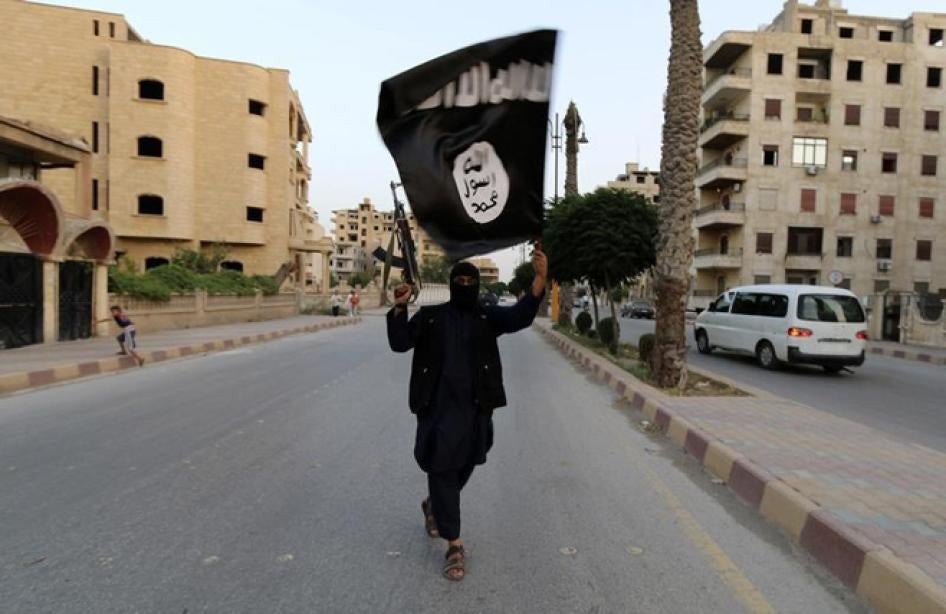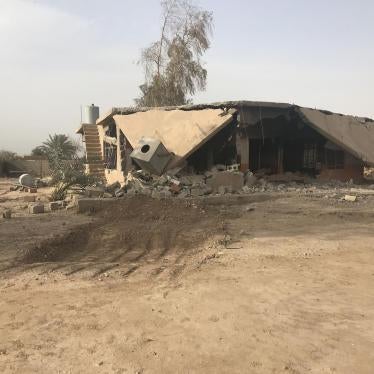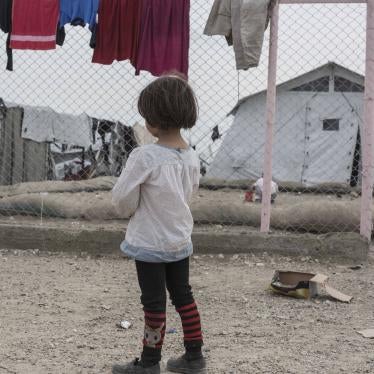The Syrian Democratic Forces (SDF) recently gave journalists access to Alexanda Kotey and El Shafee el-Sheikh, both UK nationals in the Islamic State (also known as ISIS) reportedly implicated in the torture and beheading of several foreigners, including journalists and aid workers.
Detained foreign ISIS suspects interest the public and foreign journalists are often seeking ways to get them on camera. But here is the snag. The laws of war prohibit subjecting detainees to “public curiosity.” These prisoners – who have no lawyers – are in no position to freely answer questions before the cameras. They said they were not being mistreated in custody – but could they have safely given another answer before being returned to their captors? They were asked questions about their involvement in terrible crimes, but how to evaluate their answers knowing that a future prosecutor will make use of such recordings.
In the catalogue of horrors that has been the conflict in Syria, this may seem like a minor issue, but it goes to the heart of a broader question: despite ISIS’s ghastly record of cruelty and atrocity, can’t we treat these men similarly to prisoners from other wars?
Watching the two men on TV is not easy; they express no remorse or empathy for victims. When asked if he disagreed with some ISIS policies, el-Sheikh said he disagreed with “traffic tickets and other such things that have no basis in the law of Allah.” He refused to denounce enslaving Yezidis.
Both men appear to be challenging the world to provide them with a fair trial.
“I am not a democratic person, but I am being subjected to democratic law. So, it is only right for those who claim to uphold this to fully uphold it,” said el-Sheikh.
“The American administration or British government – if they decided they wanted to be champions of the Sharia and apply Islamic law upon myself and Shaf [el-Sheikh], then by all means. If not, then they should adhere to that which they claim to be champions of,” said Kotey.
Watching them, I would lose no sleep if they were denied a fair hearing. But choosing revenge over justice would be a mistake. Fair trials speak to our commitment to due process and the rule of law in the face of despicable acts. It is also about remembering the victims of ISIS and their relatives – many of whom have refused to fall into the trap of revenge.
Diane Foley, the mother of American journalist James Foley, who was executed by ISIS, said she hopes to see Kotey and el-Sheikh given a fair trial and receive life sentences. She doesn’t want the men sent to the US military prison at Guantanamo Bay: “It would perpetuate the hatred. … We need to show them what real justice looks like.”
Antoine Leiris, the spouse of one of the victims of the 2015 Bataclan attack in Paris, wrote a moving Facebook post directed at the perpetrators of the attack, saying, among other things, “I will not give you the gift of hating you.”
Watching the interviews with the two men, it is easy to hate them. But we should not give them this gift. Let’s show them what real justice looks like, not the one meted out to their victims.








